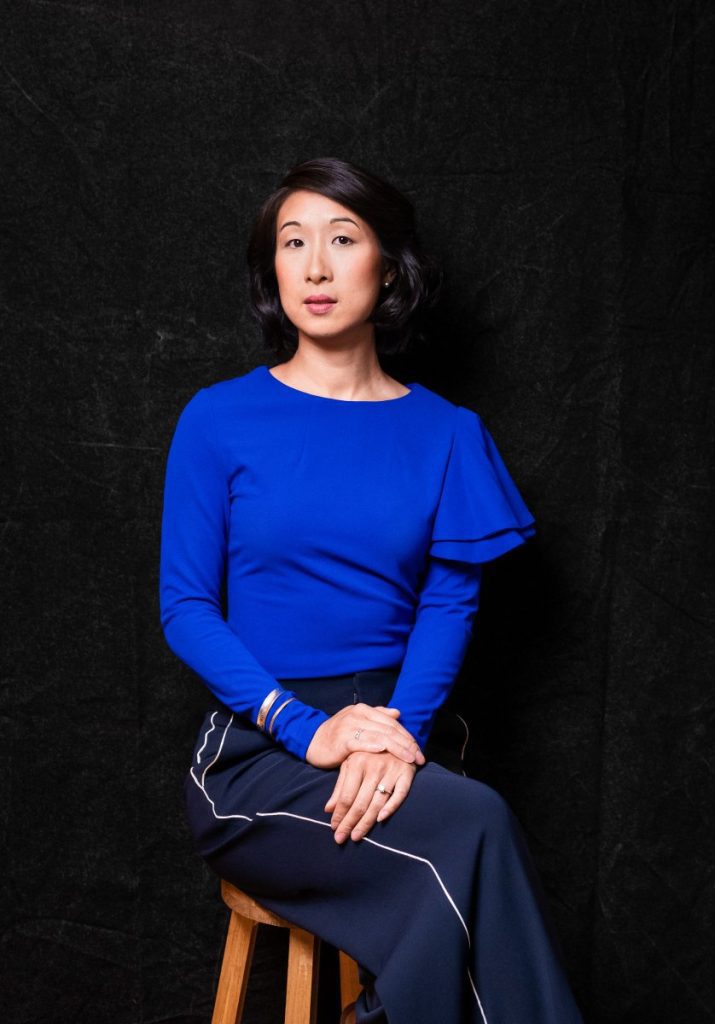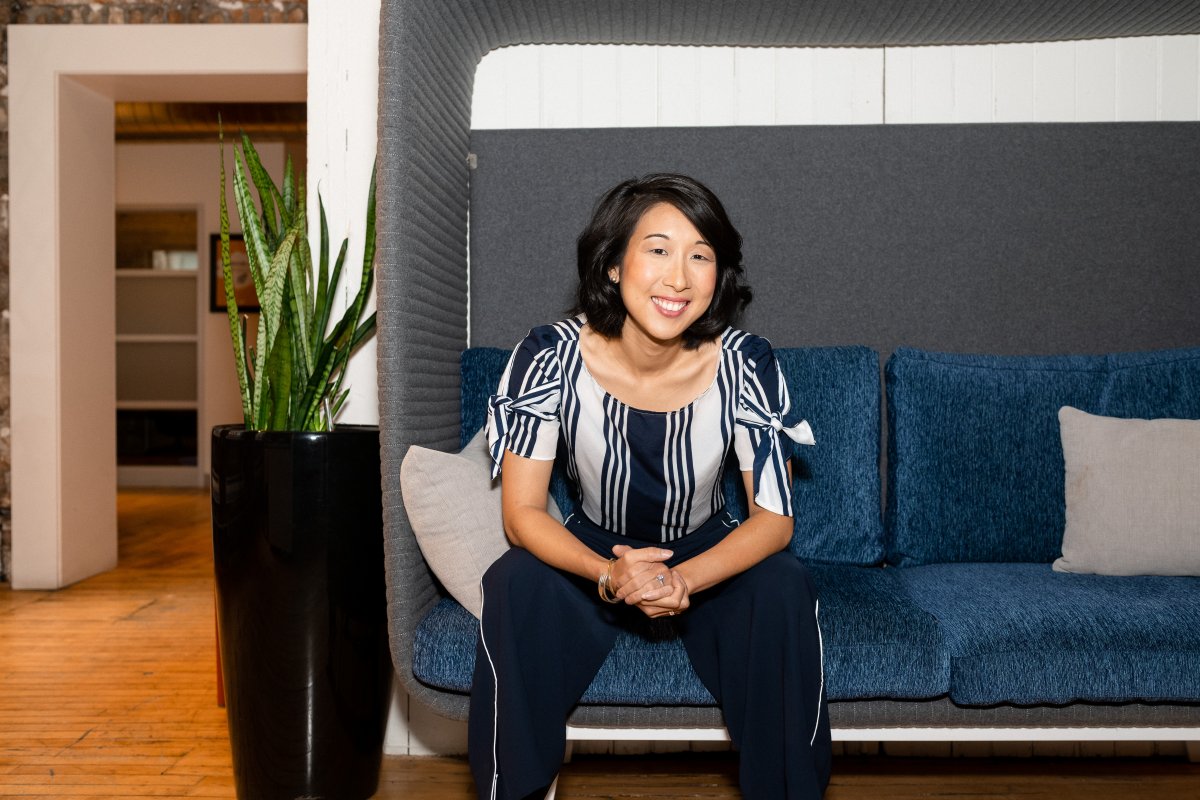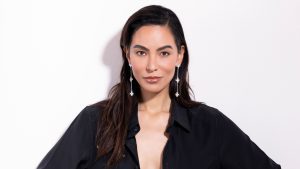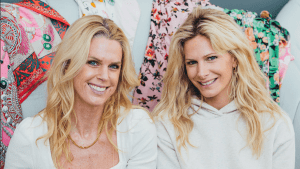[vc_row][vc_column][vc_column_text]Wattpad is an app where avid writers and readers of science fiction, romance, thrillers, and many other genres meet to create this virtual place for storytelling.
Jeanne Lam, President of Wattpad, is working to create a space for marginalized communities to monetize and share their work. As a BIPOC executive, Lam has experienced firsthand just how difficult it can be to overcome systemic barriers. Wattpad acts as a vessel for storytellers to grow their own platforms while offering much-needed representation to the next generation of writers. In a new Q&A, Lam sat down with Bay Street Bull to discuss the power of sharing diverse stories, her journey towards becoming one of Canada’s most influential executives, and the women in her life who have inspired her career. You can find all of Lam’s insights below.
For those unfamiliar, can you describe what Wattpad offers users and how the platform seeks to democratize storytelling?
Jeanne Lam: Wattpad is the app where readers and writers spend over 23B minutes a month discovering and creating stories ranging from science fiction to romance and everything in between. With a community of ~ 90M people, Wattpad is a leading web novel platform as well as a global entertainment company. Leveraging data and insights from over a billion uploads, we turn the stories with built-in audiences into hit movies, TV shows, and published books.
Helping writers build a global fandom for their work and make money is what drives us in everything we do. We’ve democratized who gets to tell their stories and started building a Creator Economy for authors. Writers come to Wattpad to find community, a massive global reading audience, and a place to take control of their destiny with a variety of monetization opportunities. By connecting writers directly with a global readership, we’re helping writers build and nurture their own fandoms.
Your formal educational background is impressive as a graduate of Harvard and Cornell. Were there any difficulties as a BIPOC woman earning a Bachelor of Science and an MBA at exceptionally historic Ivy League schools?
Jeanne Lam: Well, I can think of very few situations where it’s not more difficult for BIPOC women. And as the daughter of immigrants, my family didn’t have existing knowledge that I could leverage to help me navigate how to get into universities or corporate America. My experience at both Cornell and Harvard Business School were supportive and inclusive, and invaluable in helping me take leaps on the social mobility ladder. But, we’re still operating in the larger context where existing systems are stacked against immigrants and BIPOC people – our ladders are different.
What led you to study Policy Analysis and Management and an eventual MBA to follow? What sparked that initial interest?
Jeanne Lam: I have no idea how a 17-year-old is expected to know what they want to do for a living, especially when most of our teenage years are spent learning about academics and not about industries or job functions. I was lucky to grow up in New York City, and during my high school years got internships at an investment bank and at a large non-profit, which at least exposed me to different functions. As a result, I pursued something in “business” and the word “management” sounded close. Everything I just said is ridiculous as career advice. So I’m an advocate of being flexible about career switching in later years because your 17-year-old self maybe had no idea.


After 6 years of working in management consulting and spending time at Yahoo! though, I knew I wanted to take some time to invest in myself, in my network. That’s why I applied to Harvard Business School; not because I needed it to get to the next phase in my career or learn a specific skill. Everyone has a different reason for wanting to go to grad school. It was important for me to be honest with myself on why I wanted it – it allowed me to benefit from the process itself which requires a lot of reflection. And to make sure it’s the right way to spend a good chunk of change and even more valuable, my time.
In the modern tech landscape, how crucial is formal education to success and professional development?
Jeanne Lam: Tech isn’t a fully meritocratic industry – tech companies still subscribe to the same corporate systems and hiring practices as other companies where formal education is valued. But, tech companies do push the boundaries and experiment on the fringes, where there is more acceptance of non-traditional measures of competency. That’s why to me, the question is not what tech/tech companies expect of formal education. The question is, what does an individual need in order to be their best?
What are some of the tangible initiatives of the Coalition of Innovation Leaders Against Racism (CILAR)?
Jeanne Lam: CILAR’s focus is on increasing access and opportunities in the innovation economy, especially for black and indigenous people, where the need for action is the greatest. There are five pillars with initiatives under each, that I’m happy to share in more detail:
- Entrepreneurship and Capital Programs:
- 96 grants distributed to black-led businesses (2021) with over 1700 applicants
- Supporting with network and amplification of Phoenix Fire – first BIPOC women and non-binary early stage (angel) fund
- Youth Development Programs:
- 30 direct reverse-mentorship relationships and 430 youth reached through exec firesides – 3rd cohort launching in September
- Google Micro-certificates with NPower, 1100 participants in the program and over 750 graduates placed in jobs
- Job Opportunities:
- Published Talent Playbook powered by HP and KPMG – launching in the next 3-6 months to help innovation sector companies accelerate their DEI programs and effectiveness
- Community & Leadership:
- Activated 16 of founding members in ISED’s 50-30 Challenge
- Activated 14 founding members in Onyx Program
- Inclusive Innovation and Technology:
- EDI Resource Hub, powered by TD bank and piloted with CILAR members – this is now publicly available here
- CILAR is launching a program to scale and support organizations on this journey
What were the personal barriers you faced that inspired the foundation of the coalition?
Jeanne Lam: The decision to be a founding member was easy. I have had too many experiences of inappropriate behaviour – from microaggressions commenting on my stubbornness (as an Asian woman, was I expected to be docile?) to overt harassment. For much of my life, I was too scared about the impact it’d have on my career to say something. More BIPOC leadership is necessary.
With George Floyd’s death and BLM protests, I did not want to sit by. My good friend Armughan Ahmed called me and said, “Let’s do something.” We work our whole lives to get into increasing positions of responsibility, impact, and authority. Well, as “innovation leaders,” we are here now and the question became, what else can we do with that?
Who are some of the women who have inspired your journey as a business executive, either in the field or outside of it?
Jeanne Lam: I remember when I learned that only four Fortune 500 companies were led by women; today it’s 41. We have more female politicians than ever before demonstrating incredible leadership (let PM Sanna Marin dance!). We have women like Greta Thurnbuerg, Margaret Atwood, and Domee Shi who show us what it looks like to break the mould.
But to me, inspiration comes from anyone leading with integrity and doing something new and different. I look to those around me most for inspiration – my friends, my coworkers, and my family. They literally inspire me to be my best self and do my best work, to be able to be vulnerable, to ask questions of them that help me better understand decisions and opportunities.
Of the 1,500 Wattpad stories that have been adapted into books, television programs, and films, approximately what percentage would you say are written by women, BIPOC writers, or other marginalized groups?
Jeanne Lam: One of the best things about Wattpad is that we’re home to incredible communities that have been historically marginalized in the publishing industry. To date, over 1500 Wattpad stories have been published as books or adapted for TV and film, of which the large majority of these 1,500 adapted stories are written by women. Women also make up over 90 percent of our published authors from the Wattpad WEBTOON Book Group, and BIPOC women make up 30 percent of our published books.*
*For background: this statistic represents books we have published via our various Wattpad WEBTOON Book Group imprints, not 30 percent of the total number of stories that have started on Wattpad and been published independently by the author.
Can you explain the structure of how writers can monetize their work on the platform?
Jeanne Lam: Helping writers build a global fandom for their work and make money is what drives us in everything we do. We recently announced a significant investment in writers, with a new Creators Program and $2.6M in stipends to help writers everywhere earn an income. The program will give more writers access to stipends, 1:1 mentorship and editorial support, marketing tools, writing resources, and more.
Of course, the Creators Program is just one of the ways we are helping writers make money on the platform. In addition, they can get publishing, TV, or film deals with Wattpad Books or Wattpad Studios. They can also work with our brand partners on sponsored stories. Additionally, writers can be selected to participate in Wattpad Paid Stories, where they can make money directly on Wattpad. Wattpad’s Paid Stories are available for purchase by chapter or as complete books using Coins, Wattpad’s virtual currency. Since launching in select regions in 2019, Wattpad Paid Stories have generated payable earnings of nearly $3M for writers.
What advice would you give to young women hoping to break through into the business C-suite?
Jeanne Lam: Firstly, I used to look at people in leadership and think they must have a skill set that makes them more capable of handling things, and hard choices. People in leadership don’t have any special skills here – hard and painful choices are still hard and painful. Practice making hard, courageous decisions.
Secondly, there is no C-suite archetype – every company at every stage benefits from a different type of leader. So you can be your authentic self as a leader, but need to find the company that matches that type of leader.
Thirdly, I declared my intention, which was “a seat at the table.” I spent a lot of my career wanting to be recognized for my merit, not wanting to seem too ambitious, and not knowing how to navigate my growth. When I joined Wattpad seven years ago, I accepted a position that was nearly a demotion. I had nothing to lose by making clear my desire for a seat at the table. I wish I had done that long ago because now, as a leader, I can say that I love hearing from people about their ambition.
[yikes-mailchimp form=”1″ title=”1″ submit=”SUBSCRIBE”][/vc_column_text][/vc_column][/vc_row][vc_column][/vc_column]













